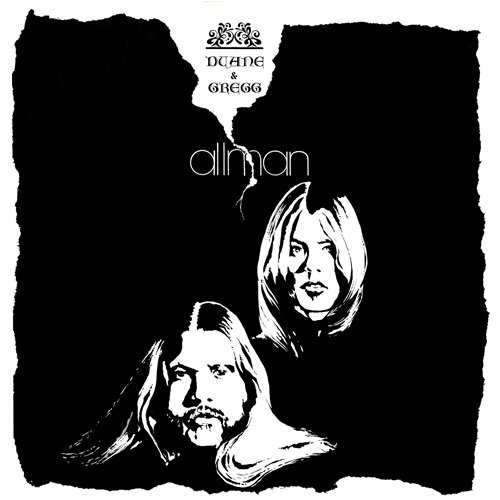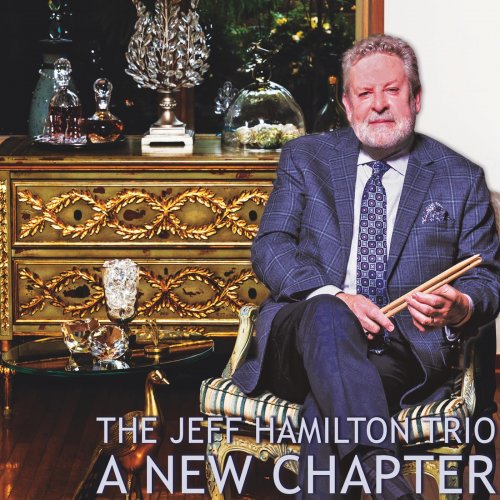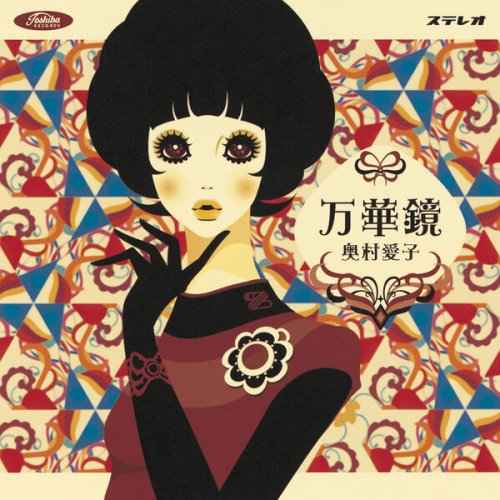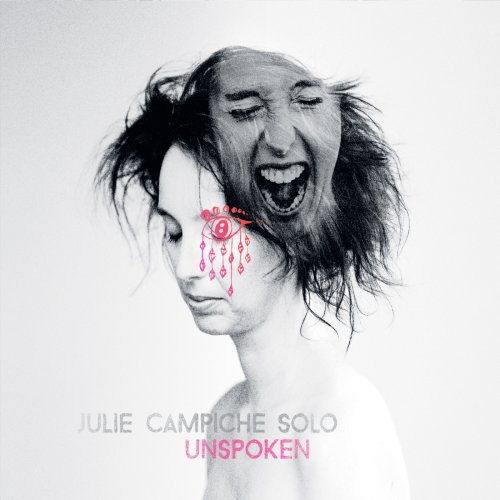Duane Allman, Gregg Allman - Duane & Gregg (2020)
- 19 Jul, 13:28
- change text size:
Facebook
Twitter

Artist: Duane Allman, Gregg Allman
Title: Duane & Gregg
Year Of Release: 2020
Label: Duane Allman & Gregg Allman
Genre: Blues Rock, Southern Rock
Quality: Mp3 320 / Flac (tracks)
Total Time: 29:25
Total Size: 72/183 Mb
WebSite: Album Preview
Tracklist:Title: Duane & Gregg
Year Of Release: 2020
Label: Duane Allman & Gregg Allman
Genre: Blues Rock, Southern Rock
Quality: Mp3 320 / Flac (tracks)
Total Time: 29:25
Total Size: 72/183 Mb
WebSite: Album Preview
01. Morning Dew 3:47
02. God Rest His Soul 3:59
03. Nobody Knows You When You're Down and Out 4:37
04. Down in Texas 3:29
05. Melissa 3:15
06. I'll Change for You 2:56
07. Back Down Home with You 2:28
08. Well I Know Too Well 2:12
09. In the Morning When I'm Real 2:42
Duane Allman:
Duane Allman went from musical unknown to one of rock's most revered guitar virtuosos, only to die a legend, all in about 24 months. He barely had time to establish his legacy, much less his name. The bulk of his reputation and legacy rests, understandably, with the Allman Brothers Band -- two finished studio albums (1969's The Allman Brothers Band and 1970's Idlewild South, a live album (1971's landmark At Fillmore East), and a posthumously released studio/live album (1972's Eat a Peach) -- along with lots of shows with them (some of which, off radio, later surfaced on bootlegs). But given his pairing with Eric Clapton on 1970's Layla and Other Assorted Love Songs by Derek & the Dominos and his voluminous session work in which he played behind other artists (along with songs from a busted solo album project), there were enough outside projects to justify a pair of anthology collections. Either one is a fine place to start musically, with the first set also containing a wonderful extended essay on his life and career, but serious fans found much to explore by digging deeper into the entire albums from which a lot of those tracks, even the session work, were pulled. In 2013 the Rounder label gave due respect to the scope of Allman's contributions with the massive seven-disc box set Skydog: The Duane Allman Retrospective.
Gregg Allman:
Gregg Allman's most visible contribution to rock music was as lead singer, organist, and songwriter with the Allman Brothers Band, founded by his brother Duane in 1969. He never threatened to eclipse the band that carried his family name, but he found occasional success and popularity with his solo work, which was distinctly different, more soulful, and less focused on high-wattage virtuosity.
Allman's instrument was the organ, and he was most effective, when in top form, as a singer. His first instrument, ironically enough, was the guitar, and he took it up before his older brother Duane did. But Duane learned it better and quickly eclipsed Gregg. Where Gregg did excel, however, was on the organ and as a singer (a role Duane was never comfortable with), which proved important but not at the center of a group that became famous for its 40-minute instrumental jams and three-hour sets. Through their early efforts, in bands like the Allman Joys and the Hour Glass, they shared the spotlight, with Duane taking the lengthy solos and Gregg fronting the band and offering Booker T. Jones-type keyboard playing. Liberty Records signed the Hour Glass and tried making Gregg into the focus of their efforts during the late '60s, but it never quite worked.
When the Allman Brothers were organized, the flashy (and vital) instrumental moments belonged to his brother and Dickey Betts and, later still, Warren Haynes and Derek Trucks, nephew of Allman Brothers drummer Butch Trucks. Gregg's songs, however, including "Whipping Post" and "Midnight Rider," were among the group's notable originals during its classic period, 1969-1972. Beginning with Brothers and Sisters, Betts' songwriting and singing assumed increasing prominence.
It was during the period that Brothers and Sisters was burning up the charts that Gregg Allman emerged as a solo artist with his first album, the critically well-received hit Laid Back, which put the softer, more serious, soul- and gospel-tinged side of his work in sharper focus. A tour followed, which yielded a live album that was also a success. This first period of solo popularity was interrupted by a combination of professional and personal conflicts; the Allman Brothers Band toured extensively and struggled to come up with a follow-up to Brothers and Sisters, and Gregg Allman began a relationship with Cher, the ex-wife and singing partner of Sonny Bono, which resulted in a tumultuous marriage for the two. These activities were played out amid Allman's well-publicized drug problems, which culminated with his testifying against a band employee in a federal drug case, which, in turn, led to the temporary but extended dissolution of the Allman Brothers Band.
Ironically, it was during this period, in 1977, that he delivered Playin' Up a Storm, a pop-soul effort that proved to be one of his most accomplished and successful albums. His next two albums, I'm No Angel and Just Before the Bullets Fly, released at the end of the 1980s, were quickly eclipsed by the re-formed and reinvigorated Allman Brothers Band's success on-stage and on record. His 1997 release Searchin' for Simplicity and the double-CD anthology One More Try didn't match the urgency or success of the band's activities. In 2009, Australia's Raven Records imprint issued a 19-track, single-disc retrospective, entitled The Solo Years 1973-1997: One More Silver Dollar, that covered the whole of Allman's solo career to that date from his years at Capricorn and Columbia. In 2011, some 14 years after his last solo album, Allman released the T-Bone Burnett-produced Low Country Blues on Rounder Records.
Allman published his autobiography, My Cross to Bear, in 2012, which was the beginning of several retrospective, or at least nostalgic, projects from the singer. Most of these came to fruition in 2014. He kicked off that year with All My Friends: Celebrating the Songs & Voice of Gregg Allman, a star-studded show in Atlanta, Georgia that was released later that year as a live DVD and CD. A few days after that show, he went to his hometown of Macon, where he gave a set that was released in 2015 as Back to Macon. The Allman Brothers Band gave a series of farewell concerts at the Beacon Theater in New York City that fall and Allman continued to perform with his own band, and also entered FAME Studios in Muscle Shoals, Alabama to record another solo album, Southern Blood, with producer Don Was and a host of friends. Allman's health began to fail and he had to cancel scheduled live appearances. He returned to working on th album, completing it shortly beforepassing away from complications due to liver cancer on May 27, 2017. Southern Blood was issued that fall.
Duane Allman went from musical unknown to one of rock's most revered guitar virtuosos, only to die a legend, all in about 24 months. He barely had time to establish his legacy, much less his name. The bulk of his reputation and legacy rests, understandably, with the Allman Brothers Band -- two finished studio albums (1969's The Allman Brothers Band and 1970's Idlewild South, a live album (1971's landmark At Fillmore East), and a posthumously released studio/live album (1972's Eat a Peach) -- along with lots of shows with them (some of which, off radio, later surfaced on bootlegs). But given his pairing with Eric Clapton on 1970's Layla and Other Assorted Love Songs by Derek & the Dominos and his voluminous session work in which he played behind other artists (along with songs from a busted solo album project), there were enough outside projects to justify a pair of anthology collections. Either one is a fine place to start musically, with the first set also containing a wonderful extended essay on his life and career, but serious fans found much to explore by digging deeper into the entire albums from which a lot of those tracks, even the session work, were pulled. In 2013 the Rounder label gave due respect to the scope of Allman's contributions with the massive seven-disc box set Skydog: The Duane Allman Retrospective.
Gregg Allman:
Gregg Allman's most visible contribution to rock music was as lead singer, organist, and songwriter with the Allman Brothers Band, founded by his brother Duane in 1969. He never threatened to eclipse the band that carried his family name, but he found occasional success and popularity with his solo work, which was distinctly different, more soulful, and less focused on high-wattage virtuosity.
Allman's instrument was the organ, and he was most effective, when in top form, as a singer. His first instrument, ironically enough, was the guitar, and he took it up before his older brother Duane did. But Duane learned it better and quickly eclipsed Gregg. Where Gregg did excel, however, was on the organ and as a singer (a role Duane was never comfortable with), which proved important but not at the center of a group that became famous for its 40-minute instrumental jams and three-hour sets. Through their early efforts, in bands like the Allman Joys and the Hour Glass, they shared the spotlight, with Duane taking the lengthy solos and Gregg fronting the band and offering Booker T. Jones-type keyboard playing. Liberty Records signed the Hour Glass and tried making Gregg into the focus of their efforts during the late '60s, but it never quite worked.
When the Allman Brothers were organized, the flashy (and vital) instrumental moments belonged to his brother and Dickey Betts and, later still, Warren Haynes and Derek Trucks, nephew of Allman Brothers drummer Butch Trucks. Gregg's songs, however, including "Whipping Post" and "Midnight Rider," were among the group's notable originals during its classic period, 1969-1972. Beginning with Brothers and Sisters, Betts' songwriting and singing assumed increasing prominence.
It was during the period that Brothers and Sisters was burning up the charts that Gregg Allman emerged as a solo artist with his first album, the critically well-received hit Laid Back, which put the softer, more serious, soul- and gospel-tinged side of his work in sharper focus. A tour followed, which yielded a live album that was also a success. This first period of solo popularity was interrupted by a combination of professional and personal conflicts; the Allman Brothers Band toured extensively and struggled to come up with a follow-up to Brothers and Sisters, and Gregg Allman began a relationship with Cher, the ex-wife and singing partner of Sonny Bono, which resulted in a tumultuous marriage for the two. These activities were played out amid Allman's well-publicized drug problems, which culminated with his testifying against a band employee in a federal drug case, which, in turn, led to the temporary but extended dissolution of the Allman Brothers Band.
Ironically, it was during this period, in 1977, that he delivered Playin' Up a Storm, a pop-soul effort that proved to be one of his most accomplished and successful albums. His next two albums, I'm No Angel and Just Before the Bullets Fly, released at the end of the 1980s, were quickly eclipsed by the re-formed and reinvigorated Allman Brothers Band's success on-stage and on record. His 1997 release Searchin' for Simplicity and the double-CD anthology One More Try didn't match the urgency or success of the band's activities. In 2009, Australia's Raven Records imprint issued a 19-track, single-disc retrospective, entitled The Solo Years 1973-1997: One More Silver Dollar, that covered the whole of Allman's solo career to that date from his years at Capricorn and Columbia. In 2011, some 14 years after his last solo album, Allman released the T-Bone Burnett-produced Low Country Blues on Rounder Records.
Allman published his autobiography, My Cross to Bear, in 2012, which was the beginning of several retrospective, or at least nostalgic, projects from the singer. Most of these came to fruition in 2014. He kicked off that year with All My Friends: Celebrating the Songs & Voice of Gregg Allman, a star-studded show in Atlanta, Georgia that was released later that year as a live DVD and CD. A few days after that show, he went to his hometown of Macon, where he gave a set that was released in 2015 as Back to Macon. The Allman Brothers Band gave a series of farewell concerts at the Beacon Theater in New York City that fall and Allman continued to perform with his own band, and also entered FAME Studios in Muscle Shoals, Alabama to record another solo album, Southern Blood, with producer Don Was and a host of friends. Allman's health began to fail and he had to cancel scheduled live appearances. He returned to working on th album, completing it shortly beforepassing away from complications due to liver cancer on May 27, 2017. Southern Blood was issued that fall.

![Meinild/Anderskov/Tom - Spectral Entanglements (2023) [Hi-Res] Meinild/Anderskov/Tom - Spectral Entanglements (2023) [Hi-Res]](https://www.dibpic.com/uploads/posts/2026-02/1771491474_hl116k2q9n24a_600.jpg)
![The Messthetics & James Brandon Lewis - Deface The Currency (2026) [Hi-Res] The Messthetics & James Brandon Lewis - Deface The Currency (2026) [Hi-Res]](https://www.dibpic.com/uploads/posts/2026-02/1771424652_1.jpg)
![Tom Oren - Dark Lights (2026) [Hi-Res] Tom Oren - Dark Lights (2026) [Hi-Res]](https://www.dibpic.com/uploads/posts/2026-02/1771427884_tdqtmzk78zgcb_600.jpg)



![The Three Seas - Antaḥkaraṇa (2026) [Hi-Res] The Three Seas - Antaḥkaraṇa (2026) [Hi-Res]](https://img.israbox.com/img/2026-02/19/uhghtg21m4gkq8nt8lyl1f5dq.jpg)
![Meg Okura - Isaiah (2026) [Hi-Res] Meg Okura - Isaiah (2026) [Hi-Res]](https://www.dibpic.com/uploads/posts/2026-02/1771428622_a0886412943_10.jpg)
![Anna Kolchina - Reach for Tomorrow (2026) [Hi-Res] Anna Kolchina - Reach for Tomorrow (2026) [Hi-Res]](https://img.israbox.com/img/2026-02/19/quc4em3qn6fgke1rwewkbdxg5.jpg)